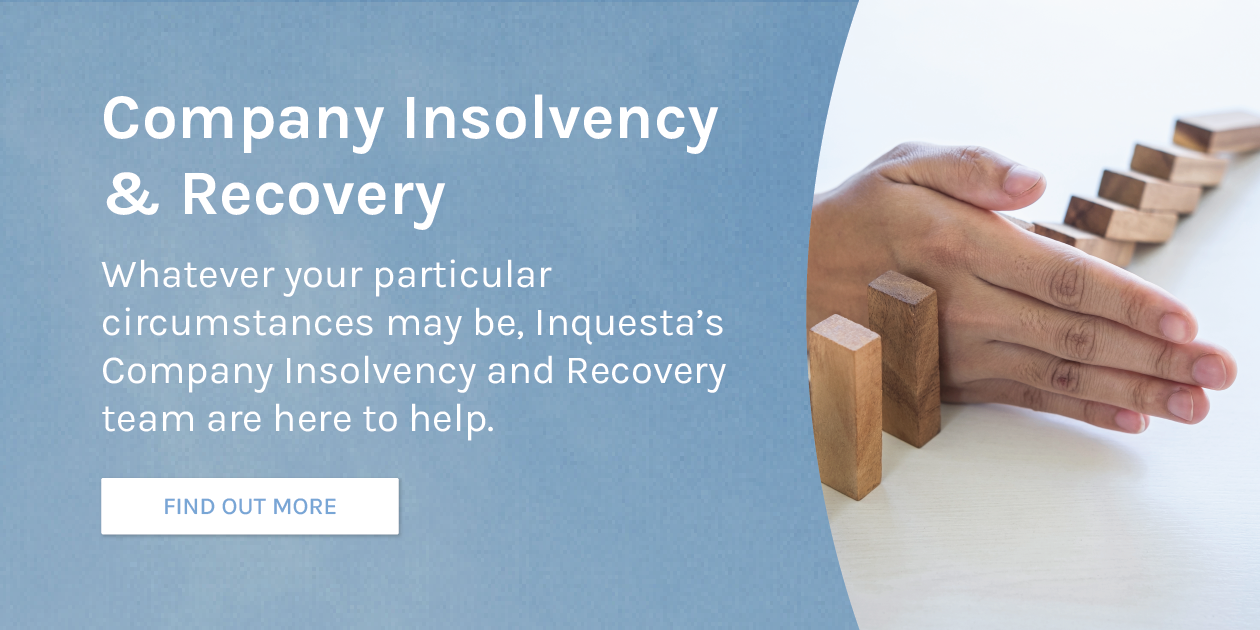Getting The Insolvency Practitioner To Work
Getting The Insolvency Practitioner To Work
Blog Article
The Buzz on Insolvency Practitioner
Table of ContentsNot known Facts About Insolvency PractitionerMore About Insolvency PractitionerOur Insolvency Practitioner DiariesThe Ultimate Guide To Insolvency PractitionerMore About Insolvency Practitioner
Whether or not you require to use an insolvency practitioner (IP) to liquidate your company depends on various factors. While involving an insolvency practitioner for all kinds of liquidation is not a legal need, doing so can usually enhance the process and make certain compliance with legal demands. Liquidating a company is a critical choice that comes with substantial consequences.
It is a procedure used when a company does not have any kind of financial institutions, or all of their lenders can be paid off completely with legal rate of interest. Recognizing the different sorts of insolvency procedures can aid you identify the finest strategy for your firm's liquidation or other formal bankruptcy treatments itself.
This is required in order to follow legal needs - Insolvency Practitioner. This is because IPs have the needed credentials and experience to guarantee that the liquidation procedure is performed according to all suitable regulations and policies. By involving a licensed insolvency expert, you can have comfort knowing that your business's liquidation procedure will certainly be taken care of professionally and in compliance with the appropriate legal demands
The Definitive Guide to Insolvency Practitioner
The insolvency specialist is designated as a liquidator and is in charge of handling the company and liquidator's debts outstanding liabilities and assets. This procedure includes selling the company's assets and dispersing the earnings to creditors. Upon completion of the process, the company is gotten rid of from the register at Firms Home.
Stopping working to do so can result in individual obligation for the company or supervisor for the lender's financial obligations. Voluntary liquidation, which consists of Lenders' Volunteer Liquidation (CVL) and Participants' Voluntary Liquidation (MVL), is launched by the company's supervisors and shareholders when they can no more pay their financial obligations. In a CVL, the bankruptcy professional is designated as the liquidator, liable for managing firm debts and all business properties.

Not known Facts About Insolvency Practitioner
By evaluating the proficiency and experience of prospective insolvency experts, you can make sure that you choose a professional who has the essential qualifications to manage your business's liquidation procedure properly. While bankruptcy practitioner-led liquidation is frequently the most suitable strategy for business encountering bankruptcy, there are different approaches to consider, such as striking off and partial liquidation.
It's vital to examine all offered choices prior to making a decision on the following finest option or strategy for your company. Striking off companies' registers is a more uncomplicated and cost-efficient means to shut inactive or little companies with no financial debts or properties. To strike off a business, its name is eliminated from the Companies House register by sending type DS01.
Before opting for striking off, it's crucial to weigh the advantages and drawbacks of this technique and think about whether it's the right selection for your organization. Partial liquidation is an additional option to insolvency practitioner-led liquidation, in which a business liquidates particular properties and obligations while continuing to run with the staying assets and responsibilities.
A Bankruptcy Specialist will certainly be able to advise you of the ideal strategy to take and make sure that everything runs efficiently. It is not possible to sell off a company without a liquidator. Selecting an authorised bankruptcy practitioner is needed for the process of voluntary liquidation to start.
The Basic Principles Of Insolvency Practitioner
It is possible to close and liquidate your firm without making use of a liquidator, provided your business is solvent and you satisfy the qualification needs to dissolve or liquidate it. However, if your business is financially troubled, you might be called for to use a liquidator and begin official bankruptcy procedures. Below are a few other informative short articles relating to business liquidation in the UK:.
Being in a setting where you're not able to pay your business's lenders is incredibly difficult. In an attempt to avoid enhancing the level of debt, numerous companies try to negotiate directly with their financial institutions and accept a casual plan. If the financial obligation is rather small and owed to one creditor, and the creditor Look At This is being participating, participating in an casual financial debt arrangement is probably the most effective option, instead than browsing the web for 'a bankruptcy expert near me'.
On the various other hand, if there are several lenders and the level of financial debt is big, creditors may not be so eager or cooperative. In order to avoid liquidation or bankruptcy, it is far better to employ an insolvency expert to formulate formal propositions and work out with creditors on your basics part.
Insolvency Practitioner Can Be Fun For Everyone
Whilst it is a method to take care of debt, there are considerable risks included with this sort of debt plan - Insolvency Practitioner. If a financial institution agrees to get in into an informal plan (IA) whereby the debtor has actually agreed to make routine, if reduced, payments to pay back the financial debt, it is essential to stick to the arrangement

The creditor is within their legal rights to back out of the contract and application the courts for your firm to be liquidated at any type of time. A formal plan that has actually been recommended by an insolvency specialist in your place, and agreed by a financial institution, provides a much safer option.
Report this page